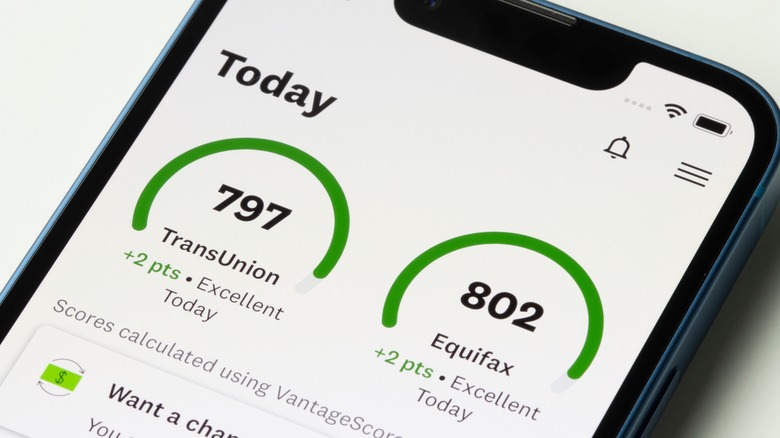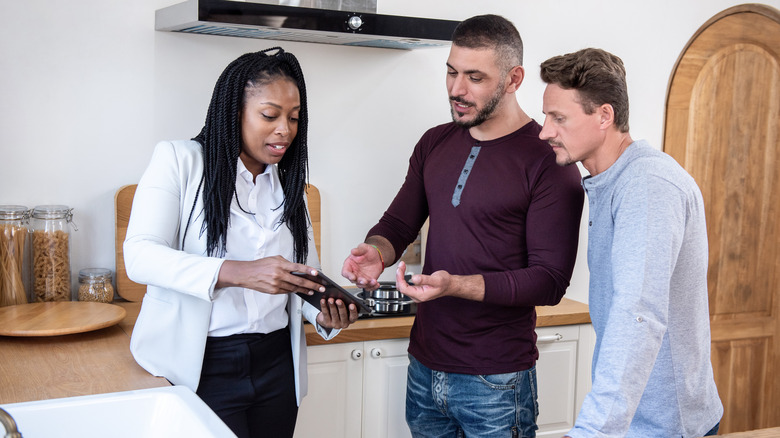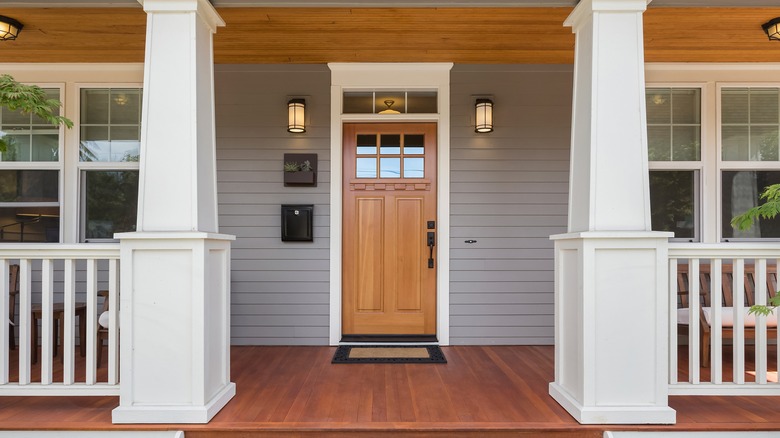15 Important Tips For First-Time Home Buyers
First-time homebuyers face a lot of challenges. Buying a home for the first time is an exciting opportunity that truly only comes once. As a result, first-timers often craft a rosy image of the real estate marketplace and the process of purchasing a home. Sometimes, everything falls into place, and this image becomes reality. However, purchasing real estate is fraught with difficulties and convoluted points that must be considered. First-time homebuyers enter into a cutthroat marketplace that can be difficult to navigate, even for seasoned real estate investors.
However, with a great strategy for success buying your first home doesn't have to be a monumental challenge or a heartache. With smart budgeting practices in place, and a knowledge of how the marketplace operates you can make the real estate space work for you and get the most out of this first home-buying experience. With these 15 tips in mind, taking advantage of all that the property market has to offer is actually far simpler than you might expect.
Create a long term savings plan before you intend to buy
Buying a home is a big financial decision. Those who already own a home know the importance of long-term savings and planning, but first-timers may be unaware of the lengthy timeline that precedes submitting an offer on a property. Saving as much as you can for months, or perhaps even years, before you start to search for a new home in earnest is incredibly important. The process of buying your first home is a marathon rather than a sprint, and it can be incredibly discouraging for a first-time buyer to approach the real estate market without enough cash to fund the down payment required.
The most important thing you can do when gearing up to buy your first home is to plan far in advance of the actual purchase date. The longer you save, the more cash you can build up, and the less financial burden you'll create on your ongoing finances. If you need a $10,000 deposit, for instance, one year of savings equates to about $830 per month, whereas a three-year savings plan cuts this contribution down to just under $280 a month. You might be able to afford a larger savings contribution than the average saver and prospective buyer, but everyone's circumstances will be different, and evaluating your own ability to put aside money will help you develop a long-term strategy for success.
Focus on improving your credit score
Your credit score is another important feature in getting a great deal on your new home. Credit scores are a complex calculation of your reliability as a borrower. The higher your score, the more confidence a lender will have in your ability to repay your debts. As a result, a great score translates into a better deal on your mortgage rate, and potentially a lighter down payment requirement, too. Anyone in the market (or hoping to be in the market soon) for a new home knows that balancing savings with credit card repayments is a challenging task. But paying off existing debts is the fastest way to improve your credit score, so this needs to be made a priority as you prepare to transition into the life of a homeowner. This is another reason to start saving and planning for the home-buying experience far in advance.
As well, if you pay off a significant chunk of existing debt before taking out a new mortgage, you will be able to enjoy a far greater cash flow balance when the new loan is made available to you. Paying off existing credit card debts, student loans, medical bills, and other forms of financing at the same time as taking out a new mortgage can be a harrowing task. So, improving your credit score is not only an endeavor in reducing interest rates and improving your borrowing capacity, but also one of intelligent cash flow management.
Investigate federal and state-run first time buyer incentives
Another important consideration to make before approaching the market is whether you are eligible for a federal or state-run first-time buyer incentive. The government wants people to be stable in their home life and often incentivizes first-time buyers with tax breaks and rebate opportunities that can make the buying experience even more valuable for a first-timer. As you continue through the early preparation phase, and then start to browse through listings in your area, it's important to understand whether you can take advantage of additional financial opportunities and incentives or not.
Fortunately, these incentive programs are well publicized and it's often very easy to find information on local, state, or federal websites about eligibility criteria, reporting requirements, and more. Yet, people suffer from a bias caused by knowledge gaps: You simply don't know what you don't know. Even though these programs are highly visible, it is easy to miss a first-time buyer incentive if you don't know to look for it.
Estimate your budget
As you continue through the savings and preparations process, it's important to think about how much you can afford to spend on a home. This question presents itself through a couple of different veins. First of all, you'll need to think about your down payment. Every home will require different kinds of financial calculations for buyers, but this requirement acts as a good baseline for a first-timer weighing up their options in the marketplace.
The down payment and other associated costs upon closing are only one part of the budgetary calculation. Alongside this initial expense, you will have to pay the mortgage every single month, which is an ongoing expense that forms an important part of your budget for many years to come. Business Insider suggests budgeting a maximum of 28% of your gross income toward monthly housing expenses. Your monthly mortgage payment is influenced directly by the amount of money borrowed to purchase the home. So, in addition to understanding your down payment obligation, you'll need to consider how much you can afford to spend on a mortgage payment every month. Renters already make this calculation when deciding where to live, but owning your own home brings about more unique expenses than a simple rent payment. You'll also have property taxes, homeowners insurance, and possibly HOA fees to take into account.
Balance your mortgage options against the prevailing market conditions
After coming up with a rough budget, you'll need to consider mortgage options. Two common types of mortgages are fixed-rate mortgages and variable-rate options. You can also purchase a home with an adjustable-rate mortgage (ARM), but this is more specialized and requires additional thinking and calculation. Simply put, adjustable-rate mortgages combine the steady payment figure of a fixed rate for the first few years, and then allow for fluid rate changes to take effect over the long term.
Most mortgages are 30-year fixed-rate mortgages, making this by far the most common choice for new homebuyers. Fixed-rate mortgages offer structured stability over the life of the loan. You will continuously pay the same rate and as a result, the same monthly cost for as long as the loan remains structured this way. On the other hand, a variable-rate mortgage fluctuates with the federal interest rate and can be a major benefit when rates are in a general state of decline.
Selecting the right mortgage for you is all about your research into the market and analysis of where it might be headed over the coming years. As a result, it's important to take the time to think about what suits your needs and lifestyle best. The purchase of a home is an investment in your future, and as with any investment, it's crucial to learn as much as you can about the marketplace and its inner workings.
Weigh down payment options
Down payment options have become more widely available over the last number of years. In the past, a 20% down payment was the standard across all mortgage lenders. Yet these days, the average home buyer puts down a down payment of around just 6% (via U.S. Bank). A smaller down payment can be a great asset for someone buying with a small upfront budget. The less you spend upfront, the smaller your initial savings need will be, naturally.
Yet, a larger down payment gives you greater equity in the property and will elicit less in repayment over the long term. As well, a down payment smaller than 20% will require the addition of private mortgage insurance. PMI is an insurance product that protects the lender and does nothing for the borrower. Once your equity ratio rises above 20%, you can eliminate the PMI payments tacked onto your mortgage bill every month, and so this tradeoff between a smaller down payment and a smaller monthly contribution is something that every borrower will need to evaluate for themselves.
There is truly no right answer when it comes to the down payment amount that you should pay when buying a home. This is because circumstances will be unique for everyone approaching the market for the first time. Taking time to think through the benefits of a smaller down payment weighed against the benefits of perhaps an extra year of savings to eliminate PMI is crucial.
Start casually browsing for homes in your area and price range
After you've been saving for some time and are getting closer to the point at which you can actively search for homes, it's important to start casually browsing through listings. This can help you understand what your budget will allow for, and the types of homes that might support your lifestyle and family.
The more time you spend acquainting yourself with the market, and properties available in your price range and area, the better equipped you'll be to understand the value that listings can provide when it comes time to seriously consider purchasing your new home. Careful browsing of listing services will help you gain greater confidence in scouring the market. This can be done while sitting on the couch and watching TV in the evenings, or as a specific activity with your partner. The key here is to soak up as much knowledge about property types, included features, specific terminology, and more so that you are equipped to be conversational about these things when really digging into the market in the coming months.
Visit neighborhoods, towns, and cities more than once
It is highly beneficial to visit neighborhoods, towns, and cities that you are considering moving to. The more time you can spend in an area, the better understanding you will have of its nuances and local quirks. It's often a good idea to eat at restaurants and walk around the roadways in these locations. This allows you to interact with local businesses and people on a direct level, giving you greater insight into the norms and potential benefits or limitations of the community.
A great realtor can help you understand these features, but there is no substitute for experiencing the environment of a place for yourself. There's just something about hands-on learning that can't be accounted for in a conversation or report made about a property or community. It's also for this reason that many buyers attend a plethora of open houses in the lead-up to making an offer on the property they want to buy.
Of course, it isn't always feasible to visit a new community. You might be moving across the country for work, or be limited in your budget or mobility, leading to minimized travel opportunities. In this instance, it's best to speak with as many people as you can who possess this first-hand knowledge of the area, and rely on the expertise of a highly professional real estate agent for customized knowledge of the community.
Select a real estate agent you trust
Buyers and sellers alike work with real estate agents on a daily basis. It may be a more common sight for a seller to hire an agent to market and negotiate over their property, yet buyers require agents as well. A buyer's agent will negotiate on behalf of the buyer when it comes time to put in an offer and close on the sale. A trustworthy real estate agent is a phenomenal asset that can't be overstated. It is possible for a single real estate agent to represent both parties in the transaction, but this can leave the door open for bias in one way or another, and many buyers and sellers opt to bring in two separate real estate professionals to handle the transaction for this reason.
It's often a good idea to speak with real estate agents in the local community in advance of making any offers on homes. These professionals are highly knowledgeable about the community and can help guide your search toward the perfect property that precisely supports your needs and desires. An effective real estate agent is an ally with specialized information and negotiation tactics that can help get you the perfect home and the best deal on that property. Speaking with real estate agents and learning about their qualifications, success in the marketplace, and personality can help you make a great choice when it comes to hiring one you trust.
Apply for mortgage preapproval
Mortgage pre-approval is an important step in the process of putting in an offer on any home. A pre-approval letter shows sellers that you are serious about purchasing the property, and aren't just browsing for homes out of your price range. Applying for mortgage pre-approval will give you a firm budgetary understanding that shores up any doubts that you may have had when establishing your preliminary budget for the purchase of your new home.
A mortgage pre-approval letter states specifically that you have been vetted by a mortgage lender and are in principle, approved for a certain amount towards the purchase of a new home. This document also contains information about your perspective interest rate and other pertinent details. At a base level, a mortgage pre-approval letter shows real estate agents and sellers that you are a serious buyer who is willing and able to purchase a home.
It's important to time the application for mortgage pre-approval correctly, though. This step can cause a hard pull on your credit report, potentially altering your credit score in the process. Therefore, you should not do this before you are certain that you're ready to pull the trigger on the right home. A mortgage pre-approval letter is typically valid for three months, and if you don't make a move on a property in this time you'll need to apply for an extension or new pre-approval document.
Don't forget the home inspection
It's critical to pay for a home inspection once you've narrowed down your options. A home inspection can be a costly addition to the equation, but in the long run, it can save you hundreds of thousands of dollars on a home that might potentially contain substantial hidden issues. The home inspection is one of the last stages for a buyer, and typically you should make an offer with the caveat that the property passes an independent home inspection.
It's also important to schedule the home inspection for a time that you can join the inspector. Most professionals in this industry will have no problem with you tagging along as they walk the property boundary and dig into the specifics of the home. In fact, home inspectors often welcome questions from new buyers on maintenance, operating home systems, and potential signs of issues that may be found in certain tricky areas of the property. This is a great opportunity for you to learn more about careful and responsible homeownership in a hands-on manner taught by a highly specialized instructor. You are already paying for the inspection, so this is an opportunity that you should not pass up.
Always try to negotiate for a more beneficial deal
Once the home inspection comes back, you will be armed with nuanced information about the property and might learn a thing or two that wasn't already apparent. With all this information in mind, you might consider countering your initial offer in light of potential renovation or repair needs that may come up. No property is perfect, so leveraging issues with the home's condition can help you save on the overall expense.
You may be able to take advantage of these issues as part of the overall transaction costs. With your inspection results in mind, you may be able to leverage a seller's position into splitting or taking sole responsibility for certain filing fees or transaction costs. You may also take a more direct approach and ask for a reduction from the initial asking price. Negotiation is constantly in play from the time you first approach the property and seller, to the moment that you close the deal and begin the process of the financial transaction. Taking every opportunity to sweeten the pot for yourself is an important lesson that seasoned homebuyers learn, but that first-timers often fail to incorporate into their approach.
Remember closing costs and moving expenses
When budgeting for a home, it can be easy to see the list price of a property and break this expense down into a down payment and ongoing mortgage contributions. But, there is more to the financial transaction than meets the eye. You may need to pay a substantial amount to move from one location to the next. If you're bringing furniture or appliances, traveling a large distance, or simply requiring the help of professional movers, the expense of moving can quickly balloon. Even if you opt to move on your own, you will likely need to rent a van, pay for gas, and perhaps even make multiple trips back and forth.
This move into your first home may also coincide with the move out of a rental property, and there will be a natural overlap to take into consideration between your final rent payment and your new home expenses. All of these material needs can push the overall expenses even higher. Understanding where all these expenses will fit into your budget is crucial to making the move as smooth as possible for you and your loved ones.
Budget for furniture and potential renovation needs
Furniture is a typical consideration when moving from one home to another, but it becomes even more important when moving into your first home. Many renters rely on furnished listings to provide the foundation of their living space. Other renters buy furniture to outfit their more limited space. Either way, your first home is likely going to be larger than the rented unit you're moving out of. This means you may need to replace or add to your existing catalog of home furnishings. In addition, decorations and personalization options come in to play more dramatically when thinking about a property that you own rather than one you rent.
One other consideration involves renovations and updates. Some homes may be sold without substantial modernization, leaving new homeowners to quickly work to incorporate home improvement projects into the footprint of the property. This can raise the budget substantially as well, so thinking about any potential renovations that might be necessary to make the home feel comfortable can guide your budgetary math and potential offer on any given property.
Never forget that this home is a fiscal asset
Lastly, it's important to remember that this home is a physical asset. It's easy to get swept up in the magic of moving into your first home, and there's a certain amount of sentimentality surrounding this first property that you buy as an individual or couple. But real estate properties aren't just a place to live. This house will continue, in all likelihood, to rise in value over the coming years. Thinking of your home as a financial asset will help you to make the best decisions possible for you and your family over the long term. This may mean staying in the property for a year or two longer than you want, or selling the home and moving into a new house after just a few years if the market provides favorable conditions.
Likewise, your home can prove a substantial borrowing asset for future fiscal needs. A home equity line of credit, for instance, is a great option for those seeking cash for renovation opportunities or to pay for large expenses like a child's college tuition. Using your home as leverage means thinking of the asset as more than just a place to call home. With this framework, you can consistently make smart financial decisions that benefit you and your family over the long term.















